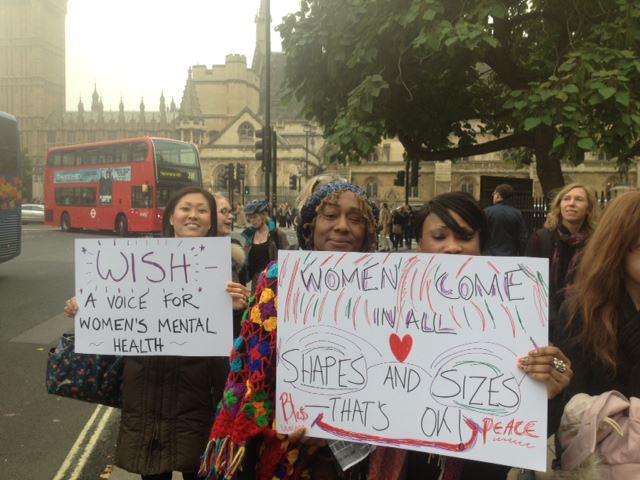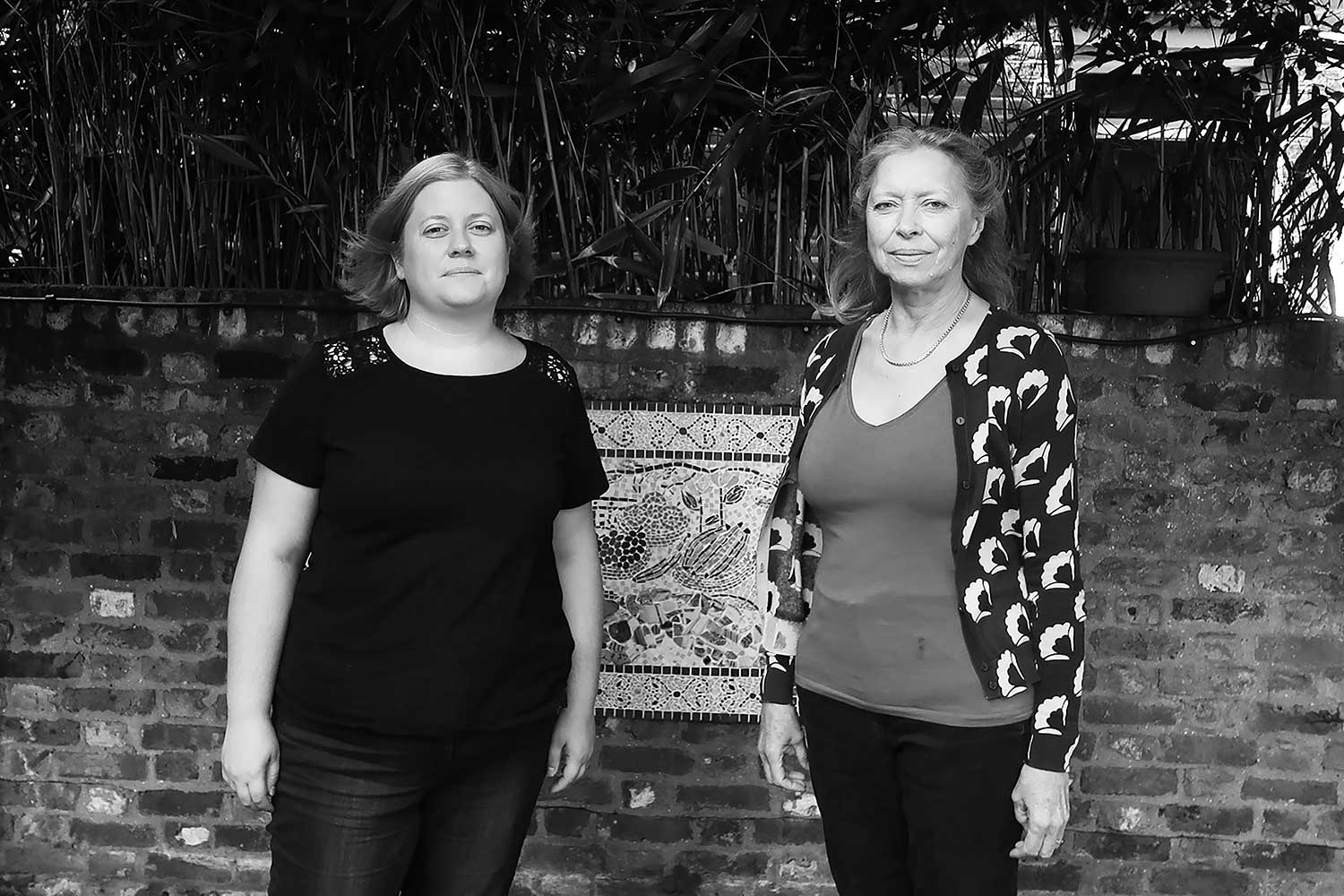Wish – a voice for women’s mental health
From its office tucked away in an alley behind St Margaret’s House on Old Ford Road, Wish mental health charity has been working for over 30 years to help women leaving prison or mental health units to rejoin the community.
Wish provides a gender-specific Independent Mental Health Advocacy service to over 200 women each year. Last year the Community Link project worked with 86 women, and a recent evaluation of the service showed that, of the women who received intensive support from the project, 79.5% were more confident, independent and had developed self-advocacy skills, 71.8% had started engaging with other support services, and 64.1% had a demonstrable change in their behaviour.
In their welcoming office with a comfy sofa, artworks and cards on the walls, Wish told Roman Road LDN about their work helping women in secure mental health units and prisons recover their mental health and rejoin the community.
The history of Wish
Wish was founded in 1987 by Prue Stevenson, Terri Simpson and Kimberley Andrews. Wish originally stood for Women In Secure Hospitals, as these were the people the charity was first set up to help.
Stevenson was working in the Education Department at HMP Holloway in London. She became concerned about the high number of women in the prison whose mental health deteriorated to such an extent that they were transferred to the High Secure Hospitals, then known as Special Hospitals.
Simpson and Andrews were former patients who had spent years in High Secure hospitals. Female patients in these hospitals were often subjected to appalling conditions, and many didn’t actually require a high level of security.
The initial aim of the group was to help move women from highly restrictive environments into less restrictive ones. Women statistically commit far less violent crime than men and the only women who need to be in secure hospitals are those with very severe mental health issues.
Eventually, the Women’s Service at Broadmoor closed down and now there is only one high-security mental health unit for women in the UK with 60 beds.
WISH moved on to wider campaigning and policy around the mental health of women in prisons and secure mental health units. They have recently set up a campaigning group, the Women’s Mental Health Network, bringing together various voluntary organisations to consult with women in secure mental health units and prisons. They hope to find out from them what are the most important issues to prioritise in terms of their mental health.
How one woman’s personal experiences led her to join Wish
Many of the individuals working for Wish bring their own personal experience to their roles, either of dealing with the mental health services or the criminal justice system.
Becky Derham, the Policy and Campaigns Officer for Wish, has been with the charity for eleven years. Her career as an advocate for women with mental difficulties began with her own experience as a teenager. She had mental health issues, depression and anxiety which led to her self-harming.
When she went to university she was unable to get help from their support services and had a terrible experience with mental health services, including a psychiatrist who told her ‘I’ve seen people with much worse problems’.
She ended up having a three-month stay in a mental health unit as an inpatient. ‘Back then, it was all mixed-sex wards – I was the youngest female and there was lots of sexual harassment. Those months in there did very little to help’.
Once she left the unit she dropped out of university as a result of what she had been through. Nowadays, Derham uses her experience to help others as a mental health campaigner.
The women who Wish helps

The women Wish help tend to have a lot of problems in common: many have a history of childhood abuse and poverty, and they are frequently the victims of domestic violence. Many women have been let down by the health services and not received the help they desperately need.
Some may be homeless. It can be an intergenerational problem: many women have grown up in care and their children will sometimes go into care when their mothers are put in mental health units or in prison.
‘A lot of women in prison and in secure units are the same women, and it depends on the professionals they’ve met along the way whether they end up in hospital or prison. They have similar backgrounds and similar difficulties’, Derham explains.
Providing practical support to get women back into the community
Wish helps women on a practical day-to-day basis through its Community Link Service. Penny Bennett, the Community Link Manager, talked about the kind of issues their users face. She works with inmates at HMP Bronzefield, supporting women with mental health issues in prison and when they come up for release.
Support means giving intensive emotional and practical help, listening, helping with housing issues, benefits, psychiatric appointments and probation officer appointments for example. Bennett will sometimes spend a whole day in prison, speaking to inmates for 30-45 minutes at a time.
Often women need help re-adjusting to life in the community; this can be harder for women who’ve been released from mental health units as they often spend longer, indeterminate periods of time in them than women do in prison.
When women with mental health issues are imprisoned, their issues often worsen and sometimes these women end up being moved to mental health units. Although there are some advantages to moving out of prison, a drawback is that their stay may be extended beyond the duration of their sentence. ‘At least in prison you know when you’re going to get out’ is a comment Bennett says she hears frequently.
Occasionally, a woman might be released from prison suddenly with no money or bed for the night. In that case, Community Link will help with practical things like getting to a GP, getting hold of medication or finding a place to stay.
Wish also offer a drop-in day for users on Tuesday with some regulars and some people who come in for help with specific issues. Trips and outings are something else they offer for their users when funding permits. They also have been running low-cost counselling sessions (on a sliding scale) for women who might need it (and you can self-refer).
Challenges Wish face and how you can help
Despite all their good work, the situation they face in terms of funding is bleak. They currently have no government funding and austerity cuts mean that mental health and social care have been cut down to the bone, meaning a high increase in demand for their services.
Wish often needs help with administration, the Community Link project, writing letters to women or doing some practical face-to-face work. They prefer to build up a long-term relationship with volunteers if possible. You can also apply to become a Trustee on the board.
More info about volunteering for Wish at womenatwish.org.uk/volunteers.
If you have direct experience of mental health issues or of the criminal justice system, you can also take part in the WMHN survey at womensmentalhealthnetwork.com.
Contact Wish
Phone: 0208 980 3618
Address: 15 Old Ford Road, London E2 9PL


